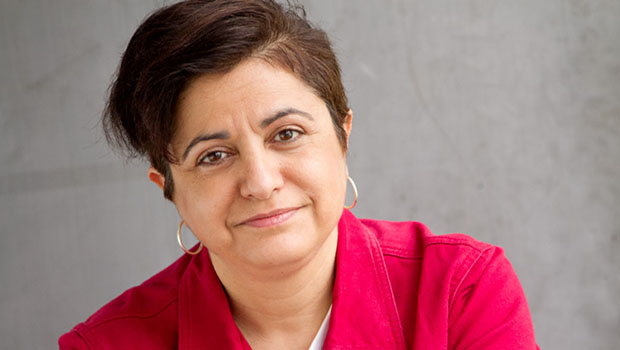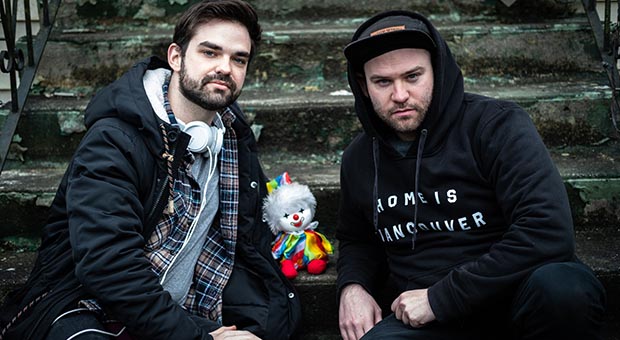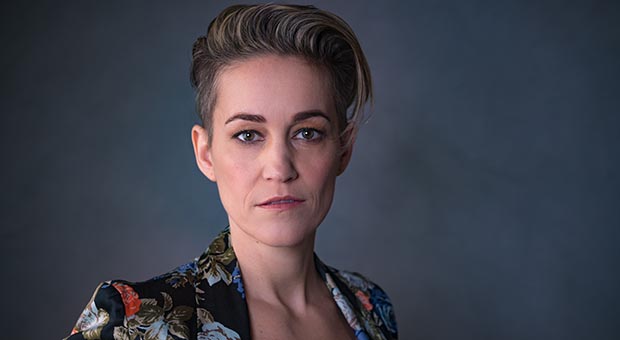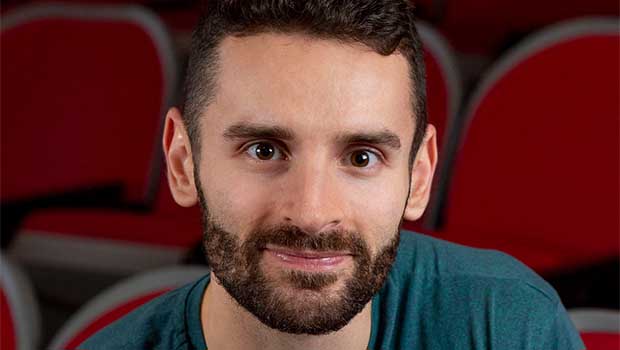
04 Aug The Biz Interview: Michelle Muldoon
At BizBooks.net, we are loyal supporters of the Canadian creative community.
In our home city of Vancouver, Michelle Muldoon is an award-winning screenwriter and filmmaker, who has been recognized for her work in Vancouver and beyond.
In advance of her induction into the Action on Film International Film Festival Legends Society next month, we spoke with Michelle Muldoon about her accomplishments thus far, her opinions on the screenplays of today, and what projects she’s involved with these days.
________________
Why don’t you start by telling us a little bit more about you and which projects you’re currently involved with?
I am first and foremost a writer, and secondly a filmmaker. I started writing seriously in 2007, and once I found a mentor, was winning film festival awards a year later. In the ensuing eight years, I’ve had success at numerous festivals, and have become part of the festival team at two of them. I created and run the Writers Room, an alumni writers’ event and online community for the Action on Film International Film Festival in California. Plus, as a board member of Women in Film and Television Vancouver, I created and run the International Screenwriting Competition at the Vancouver International Women in Film Festival.
I’m in post-production on a three minute short film called Chaos Management, and I hope to make a feature film in the next year. EFC Film in California has applied for my U.S. 0-1 Visa in order to bring me down to Los Angeles to direct my feature film screenplay, Dead Fest.
At the moment, I’m writing a science fiction feature script and a web series.
From a writer’s perspective, what are many of today’s screenplays getting right or getting wrong in your opinion?
In the case of indie film, I have to say the script is under-developed.
Indie filmmakers need to be more fearless with the script. They shouldn’t be afraid to work with story editors and script consultants. These are people whose only interest is helping you make your script better. They don’t have the filter of friendship, relationship, or family to temper the feedback they give. There’s an old and true saying, “writing is rewriting”. There is a point where you have to hang your hat on a draft, but I think too many indie writers hang that hat too early because they erroneously relying on their friends to give them the tough feedback, and that rarely results in what you need.
Writing a story about compelling characters with unique voices, in fresh situations that involve heightened conflict is tough. If you don’t get fresh eyes on your work then you never truly know if you’ve achieved that.
Lastly, I believe you should have script readings for many of your drafts, and take feedback from the actors after each. If you want quality actors in your film, then you need to find out if the roles are attractive to them. The writer can still decide whether or not they’re taking the feedback, but they need to receive feedback before they can accept or reject it.
What do you think are the three most important elements for a successful screenplay?
Structure. Story, Character. By that I mean who the character is, how they talk, and how they relate to each other. The characters you create should engage the audience. The audience should have an opinion and a reaction to the characters on the screen. Audience indifference is the kiss of death to a film.
Structure is all about how you develop and relate the story you want to tell. It’s how you build and expose the conflict and resolution of the film. It is the pattern that creates the definition of the story.
Your story needs to be interesting. It needs to have a central conflict or obstacle and it needs to flow towards resolution. You must give the audience someone to root for, someone to care about, someone who is interesting. There needs to be a universal theme that can transcend boundaries. And most of all, story must have layered meanings that hit the audience’s buttons on so many different levels.
I’m going to add one more element that is crucial; formatting. If your script doesn’t look like a script, then no one is going to finish reading it. Just because you read scripts, doesn’t mean you know how to format one. Buy The Screenwriter’s Bible by David Trottier. It’s that simple. There are no excuses.
What is your opinion on actors who want to get into screenwriting? What advice would you have for them?
Writing is easy. Writing a good screenplay is hard. There are rules, there are expectations, and there’s definitely time required. If the actor is committed to working on their craft then go for it. Get out and meet your fellow writers, take workshops, buy the books that will help you develop, and be ready to put your nose to the grindstone. I always hear that it takes eight to ten feature screenplays before a writer really feels the story and understands the craft of writing. I think there’s a lot of truth to that. So, be prepared to work, a lot, in solitude, for a long time.
If the actor isn’t willing to put as much effort into studying the craft of writing as they put into the study of the craft of acting, then they shouldn’t do it. Go find a writer to work with if you want to make a film. Give yourself the best chance to succeed if you aren’t interested in working at writing.
What was your inspiration for getting into writing and your other endeavours in producing and directing?
I spent the first part of my life in sport; playing then coaching volleyball. I was burnt out, and it was time for a change. I needed something for me; something I could do on my own. I started with short fiction, but on the recommendation of a friend, I tried screenplays. I acquired a copy of Final Draft and started writing. There’s no polite way to say it, I sucked. I had a lot to learn, so I went out and found an instructor that made sense; how she communicated, and relayed her instruction. To this day, I still hire Pilar Alessandra at On The Page Script Consulting to cover my first draft. She’s good, better than good, and I’m not saying that because I’m on page 250 of her book, The Coffee Break Screenwriter. (Yes, that was a shameless plug) It took less than a year after working with her for me to receive my first Film Festival nomination.
I make film because that is where the market has gone. It’s becoming increasingly more difficult for a writer to be noticed strictly writing spec scripts. The spec script market has gotten better, but it will never be what it was in the 80’s and 90’s. You have to separate yourself from all the other aspiring writers, and craft an identity. And the only way to do that is make film. This is an age for the Indie Auteur and if you want to work in film, then you need to reinvent yourself.
What have been a few of your most memorable career moments to date?
My most memorable career moments have been:
- Winning the Women of Film Award at the 2009 Action on Film International Film Festival.
- My nomination for Best Director at the Movieville International Film Festival. The nomination list included Feature Film Directors and there I was, nominated for my eight minute short film, A Rendezvous.
- My impending induction into the Action on Film International Film Festival Legends Society in September. Independent Filmmaker Stan Harrington and I are the first inductees. We will then be the ones responsible for nominating and inducting other alumni members who strive not only to create film, but who do it with a high level of integrity. From there, we become the advisory committee that will help chart the future of the festival. The induction comes with some perks. I am now guaranteed to screen for life at the festival, which is now in its eleventh year in Monrovia, a small town next to Pasadena, CA. I think this honour says more about my value system than my filmmaking ability, and that makes me very proud of the honour.
- The two screenwriters events I created and run; The Vancouver International Women in Film Festival Screenplay Competition, and the Writers Room alumni event for the Action on Film International Film Festival. I believe in community, and with these two events I’ve been given the chance to put my money where my mouth is and work towards building and contributing to community.
What books have been influential in your creative journey?
This is going to sound odd, but my first formatting book, The Hollywood Standard by Christopher Riley, made a big difference to me. I’m a linear thinker, and when I realized that a script has a clear form, then writing within that form freed my creativity up.
I also enjoyed the William Akers book, Your Screenplay Sucks! And there are things about Save The Cat! by Blake Snyder I like a lot.
I think you have to be wary of anything that dilutes screenwriting to a simple formula It isn’t that easy. However, I do think there’s something in every book that can lead you to being a better writer.
Lastly, I would have to say you should never discount the influence of narrative fiction on your screenwriting. I was a huge Frank Herbert and Farley Mowat fan as a child. These two authors created amazing worlds with their words. You may be an avid reader your entire life, but there has to be writers who first inspired that love. They were mine. When I started writing I thought back to them, how they crafted something I bought into so readily, and how I wanted that for my screenplays.
In your opinion, what is the current state of the Canadian film, television, and theatre industry?
I think we have a stronger indigenous television industry than feature film industry. We’re making programs that play all over the world, whether it’s Continuum, Murdoch Mysteries, Lost Girl, Rookie Blue, or Motive. I think we have a lot to be proud of, but we need feature films to thrive in Canada. We need a stronger culture of private investment in film, and we need access to the screens in our own theatres. Distribution for Canadian film is difficult. Until we solve the issues around more diverse access to financing and investment, and a way to show our films more easily, I think feature films in Canada are going to continue to struggle for the support of the general Anglophone population.
What do you think the biggest challenges are for new writers, producers, and directors who want to enter the industry?
While the digital age has made production easier than ever, it’s also had a difficult flip-side to it. It’s harder to get noticed amid the cacophony. If you’re the needle, and the haystack keeps growing exponentially, how is anyone supposed to find you? With screenwriting programs so accessible and the empowerment of the “everyman” through blogs and the internet, everyone thinks they can write so everyone does. The amount of entries in contests and festivals, for both film and screenwriting, proves that the amount of material being generated grows every day. It’s much harder to get noticed. We used to say the cream rises to the top, but I don’t think that’s true anymore. The distance it needs to travel is just too huge. You need to find a way to separate yourself from the masses, and I think that is the main challenge for everyone now.
Where can we find out more about you?
You can find out more about me at: MichelleMuldoon.wordpress.com
And you can follow me on twitter: @chat2michelle
________________
Our thanks to Michelle Muldoon for speaking with us!






